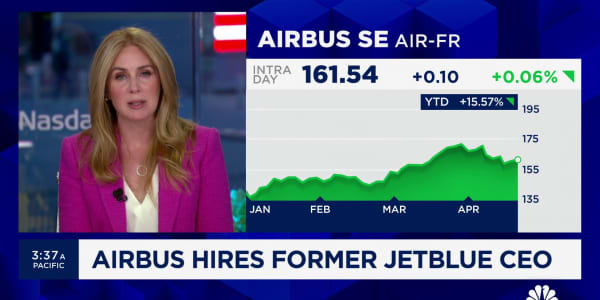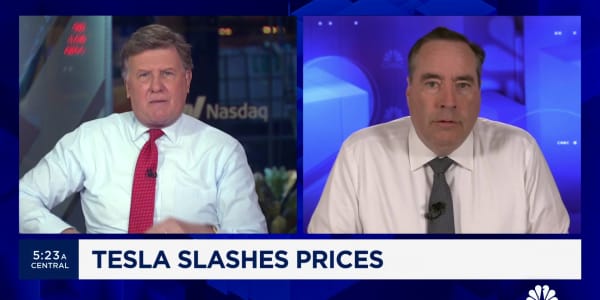Recapping the day's news and newsmakers through the lens of CNBC.
Notes:
There are lots of ways to deny wrongdoing:
"We didn't do it, period."
"A rogue underling did it."
"I'm just the CEO, how should I know?"
Or the ever-popular "No comment."
But Lululemon Athletica, the apparel company that makes yoga clothing, has taken a different tack by saying, in effect: we wouldn't have done that because it would have been so, so dumb. The key issue is whether the firm tried to conceal the fact that its yoga pants failed to conceal. Conceal customers' fannies, that is. The fabric stretched when the wearer bent over, becoming transparent.
This made the pants hard to sell, and shareholders have sued for securities fraud, alleging the firm tried to hide this and other problems, such as the fact it was dumping its CEO. The firm insists it announced all important information in a timely way.
Stocking the shelves, stacking the deck
Notes:
There was some good economic news today, but with a catch. The Commerce Department said GDP grew at a better-than-expected 3.6 percent annual rate in the third quarter, not the 2.8 percent reported earlier. Economists had expected 3 percent.
Unfortunately, a massive buildup in inventories accounted for a full 1.68 of those percentage points. Underlying demand remains unimpressive, growing at just 1.8 percent. Big inventories and low demand could undermine growth in the current quarter.
Bit hit
Notes:
A few weeks ago Bitcoin reached a new high when the U.S. government held hearings but decided to hold off doing much of anything about the virtual currency. Bitcoin's stunning gains came a screeching halt today after the Chinese government gave the crypto-currency a big thumbs down. The currency lost about $200 in value, falling to around $1,000. China barred the country's banks from using it. The government noted bitcoin's price volatility and appeal to criminals and terrorists.
That doesn't mean bitcoin won't test a new high soon enough. A Bank of America analyst said bitcoin could go to $1,300 per coin if three things happen: it is used in 10 percent of business-to-consumer online transactions; it becomes one of the top three methods of transferring money; and it comes to be seen as a wealth-storage commodity, like silver. Because bitcoin is not issued by a central bank and is not subject to changing monetary policy, it has special appeal to people in countries with volatile, uncertain currencies.
Quotes:
"It's easy for ordinary investors who blindly follow [the currency] to easily suffer heavy losses."—statement by the People's Bank of China
"There's no question that bitcoin has some inherent risk. But I think we also need to recognize the fact that bitcoin does have a role to play in countries where its citizens face high taxes, capital controls or even high confiscation risk. This is why China has seen massive growing demand for bitcoins."—BofA analyst David Woo
2014 market predictions
Notes:
Where should you place your stock market bets for next year? Think value, not growth. That's the consensus of 15 top advisors polled by CNBC. (http://www.cnbc.com/id/101239829) Among those queried, 40 percent said they expected a stock market correction of at least 10 percent, while 44 percent said they were "somewhat concerned" about a stock bubble. Asked what international assets they planned to build up, 77 percent cited equities; just 8 percent said bonds.
And here are some predictions about Wall Street in 2014.
Quote:
"Seemingly anomalous market and economic circumstances have become the norm, especially since the financial collapse in 2008, and the prospects for 2014 appear similarly confounding."—Tim Maurer, CFP, vice president of the Financial Consulate
—By Jeff Brown, Special to CNBC.com




